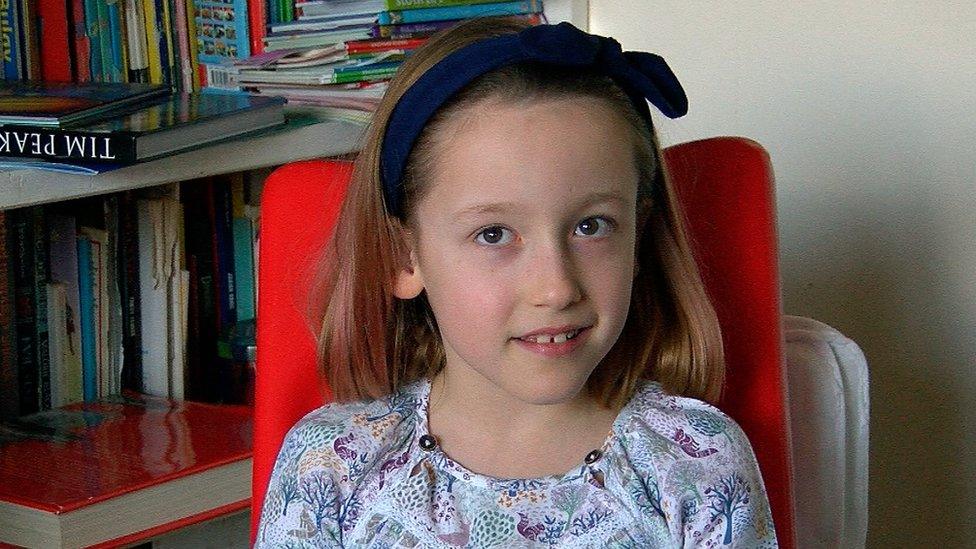Blind people 'second class citizens' over TV shows
- Published
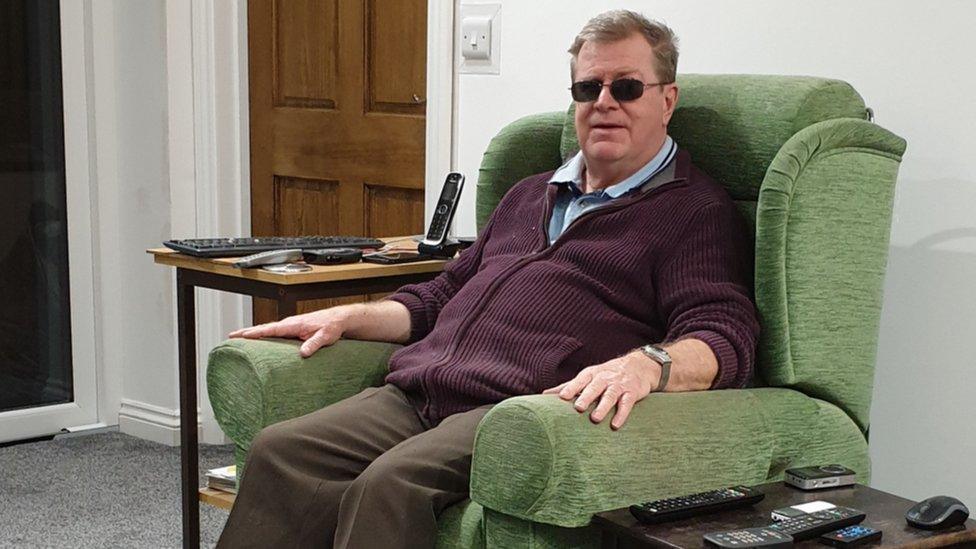
Roger Rees-Evans has no vision at all and is frustrated by the variation in the availability of audio description, particularly in Wales
Blind people in Wales have said they are treated like "second class citizens" by broadcasters who rarely use technology that would help them watch TV programmes.
The BBC, ITV and S4C must add audio description (AD) - which uses a narrator's voice to explain the action on screen - to 10% of programmes.
But viewers with sight loss said the minimum quota should be increased.
Broadcasters said they were meeting Ofcom's requirements.
AD is available on most modern TVs, and has to be selected just as viewers might opt for subtitles.
The 10% quota for AD applies to the BBC and ITV across the UK, and not specifically for Welsh output.
BBC One Wales and ITV Wales do not need to audio describe any of their original programmes as long as the overall quota is met by the London headquarters.
Welsh language broadcaster S4C is subject to the same quota, which means its audience can access a higher proportion of audio-described Welsh programming than BBC Wales and ITV Wales.
Many peak-time programmes such as soap operas and dramas carry AD, but sight loss charity RNIB Cymru said the availability of the service remained "very poor".
RNIB Cymru director Ansley Workman said: "There is a statutory minimum for 10% of AD, and we have been trying to push them to take that up to 20%."
Family viewing
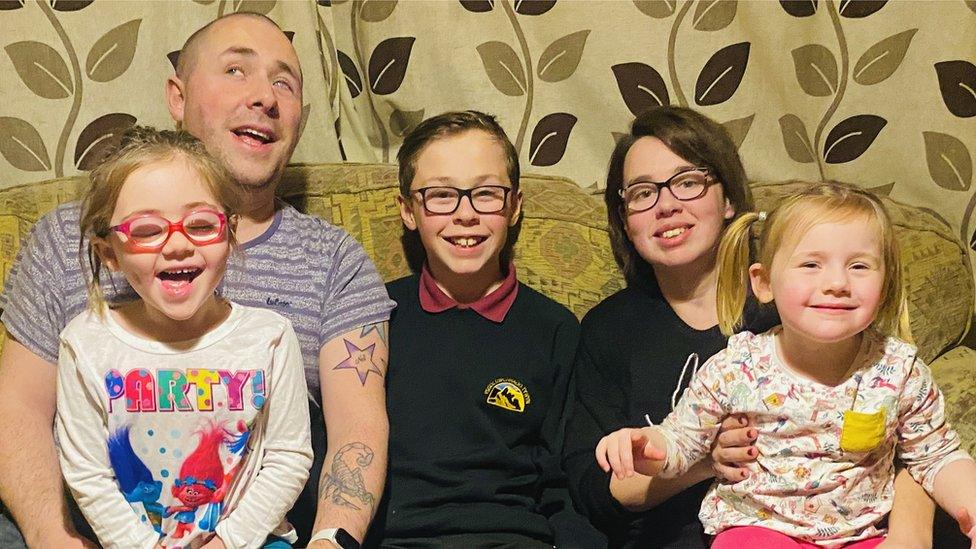
The Sutton family - two of whom are visually impaired - say it's really important for them to be able to sit and watch programmes together
The Sutton family from Llwyngwril in Gwynedd watch most programmes with AD.
Dad Paul and four-year-old Nell have significant sight loss which means they cannot follow a broadcast without it, while mum Rachel, 12-year-old Isaac and three-year-old Martha are not visually impaired.
"It's really important for our family so we can sit and watch programmes together, but also so Nell can watch a programme independently," said Rachel.
Paul said it was "slowly getting better" but broadcasters needed to move faster.
Rachel added that it was "shocking" some popular children's programmes on channels like CBeebies were still not audio-described.
She said it was "hit and miss" on some programmes depending on whether they are shown by BBC Wales or BBC London.
'Frustration'
Meanwhile, Roger Rees-Evans has no vision at all but enjoys television at home in Skewen and is frustrated by the variation in the availability of AD.
"It makes me feel like a second class citizen," he said.
"The problem is that some of the programmes recorded in Wales, for Wales, are not audio described. It is only when it goes national that the audio description comes in."
What do the broadcasters say?
The BBC, ITV and S4C said they were meeting the 10% target.
The BBC added AD was "available on 20% of BBC content, which includes a number of Welsh shows including Gavin & Stacey, Keeping Faith, The Left Behind and 1900 Island which were broadcast across the UK".
It said from next year, BBC Wales would also include AD services on all new drama and comedy produced for BBC One Wales and BBC iPlayer.
ITV said it provided more than double the minimum requirement of audio described programmes.
S4C said it provided AD for a higher percentage of its programmes than required by Ofcom.
"The desire is certainly there to do more, [but] unfortunately at the moment the funding does not allow for it," a spokeswoman said.
It added it was not possible to audio describe each programme, but they tried to ensure a variety of programmes were audio described.
It said they would investigate the possibility of audio describing some of the Cyw-branded children's programmes such as Deian a Loli.
- Published26 November 2019
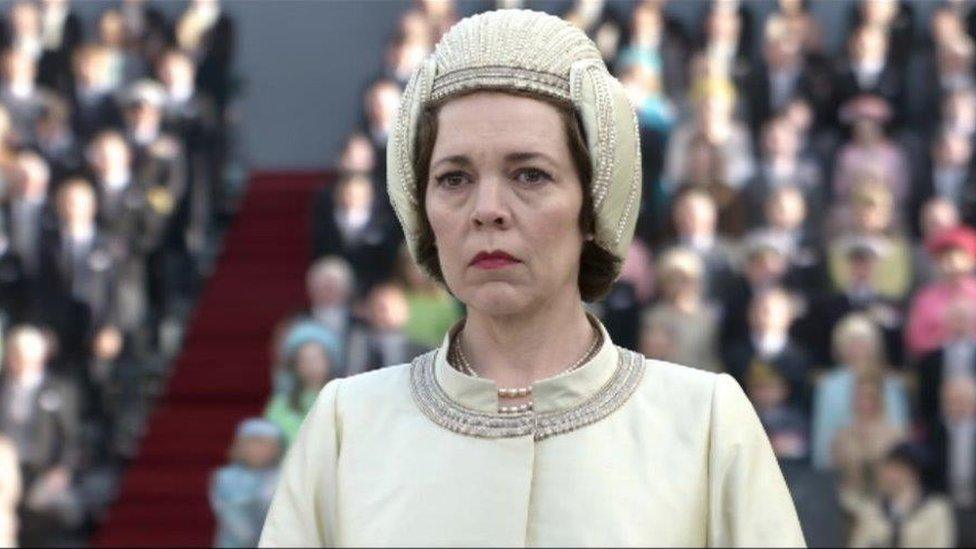
- Published4 December 2019
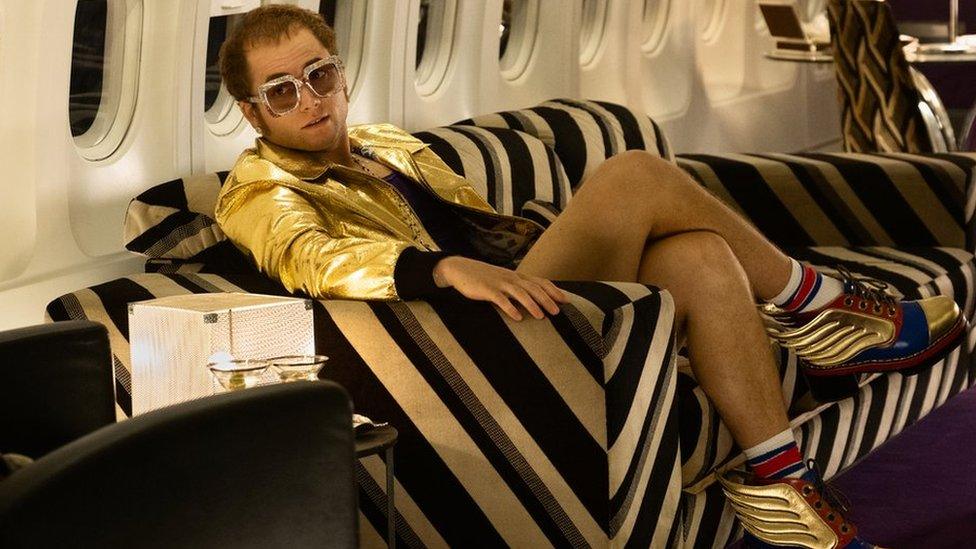
- Published11 February 2020
